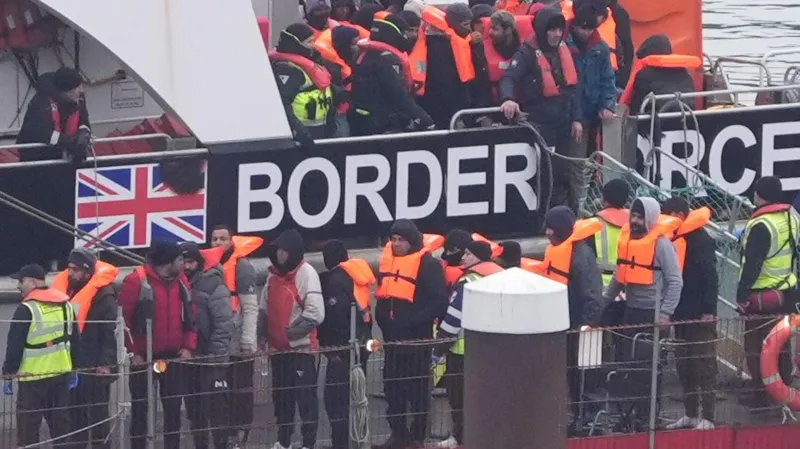In 2024, the number of migrants arriving in the UK via small boats across the English Channel hit an unprecedented total of 36,816, marking a significant chapter in the ongoing migration crisis. This figure represents a complex web of challenges for both the individuals seeking refuge and the authorities attempting to manage the situation.
The Channel, one of the busiest shipping lanes in the world, has increasingly become a focal point for those fleeing conflict, persecution, or economic hardship. Migrants embark on perilous journeys in overcrowded and often unseaworthy vessels, risking their lives in the hope of reaching safer shores. The rising numbers in 2024 highlight not only the desperation of those making the journey but also the persistence of global inequality and instability driving such migrations.
Factors Behind the Increase
Several factors have contributed to the significant rise in Channel crossings in 2024. Political unrest in various parts of the world, combined with deteriorating economic conditions in some regions, has forced more people to seek sanctuary in Europe. The tightening of migration policies in neighboring countries has also funneled more individuals toward the dangerous sea route between France and the UK.
Despite efforts by both governments to curb the crossings, smugglers have continued to exploit the vulnerabilities of migrants. Organized criminal networks have adapted to heightened surveillance, providing increasingly risky passageways that put lives in jeopardy.
Governmental and Humanitarian Responses
The UK government has pledged additional resources to manage the crisis, including increased patrolling of the Channel, collaboration with French authorities, and reforms aimed at streamlining asylum processing. However, critics argue that the emphasis on deterrence and border security has overshadowed the need for addressing root causes, such as global displacement and inadequate international coordination.
Humanitarian organizations have voiced their concerns over the dangers migrants face and the conditions awaiting them upon arrival. Many migrants, including children, have been held in overcrowded processing centers with limited access to basic services. Advocacy groups are calling for humane solutions, emphasizing the importance of international cooperation to develop sustainable and equitable migration systems.
The Human Toll
Beyond the numbers lies the human reality of this crisis. Families are separated, lives are lost at sea, and countless individuals endure unimaginable hardships. Each of the 36,816 arrivals represents a unique story of courage, resilience, and hope for a better future.
While 2024 may be remembered as a year of record arrivals, it also serves as a stark reminder of the urgent need for compassionate and comprehensive approaches to migration. Governments, humanitarian organizations, and global citizens must come together to address this complex issue, ensuring that those seeking safety are met with dignity and opportunity rather than fear and exclusion.




















